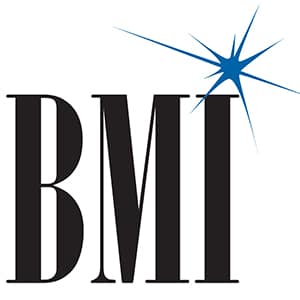
There’s a court fight taking place between BMI and the Radio Music Licensing Committee over the rates your radio stations should be paying to the PRO, and it’s starting to get ugly. Currently, stations pay approximately 1.7% of their revenue. The RMLC wants that rate lowered and BMI wants the radio industry to pay more. Here’s what a BMI court filing made yesterday said about radio.
In the court filing, which you can read HERE, BMI says radio no longer drives music sales. “It is no longer reasonable to maintain the historically depressed rates paid by RMLC stations to BMI. The marketplace is different. Radio broadcasts no longer drive music sales, once a critical revenue source for BMI’s affiliates and a factor long considered a justification for lower rates payable to BMI. Nor are radio station broadcasts confined to the radio — RMLC stations have increased their music use through simulcasts and other digital means of performing BMU-affiliated works.”
The BMI filing went on to say that over the last six years “the market has seen the erosion in the promotional value of radio stations, resulting principally from the decline in overall music sales. Through the adoption of digital streaming and multicasting, there has been explosive growth in the overall use of music by RMLC stations.” BMI says the RMLC can point to no changed circumstances that warrant a reduction in BMI’s rate.
BMI went into even more detail about radio’s promotional value to artists, saying it has declined dramatically. “Affiliates no longer benefit to the same degree from the promotion they receive when their song is played on a terrestrial radio broadcast station. Broadcast radio was the dominant means of listening to music programming for most of the last century. During that time, the radio and music industries enjoyed a symbiotic relationship. Radio stations developed large audiences, introducing them to new artists and songs, and, as a result, music sales increased, in tandem, over many decades. Broadcast radio acted as the dominant promotional tool for music sales — listeners heard and liked one or two lead singles on the radio, and then bought physical copies of albums or singles based on that exposure, resulting in increased mechanical royalties paid to songwriters, composers, and music publishers.”
BMI says there was a time the record industry built its marketing efforts around a promotional model with radio, but that is no longer the case. “Songwriters and composers accepted very modest blanket license rates from broadcast radio stations given that radio play promoted billions of dollars in sales of recorded music, which, in turn, generated substantial royalties for mechanical license rights. Such royalties associated with record sales were a significant revenue source for music composers and publishers. That is no longer the case. Although the overall use and consumption of music in the United States has grown exponentially over the last decade, the migration of consumers to online streaming services has caused album sales to erode, resulting in a dramatic decline in mechanical royalties paid to music composers, songwriters, and publishers. As the Register of Copyrights recently explained in her comprehensive review of the music marketplace, ‘as consumer preferences shift away from music ownership, the potential for sales is becoming less relevant, and the promotional value of radio less apparent.’ For example, in 2017 album sales fell 17.7% year-over-year while on-demand audio streams of single songs grew 58.7% over the same period.”
BMI also accuses the RMLC of strong-arming the PRO, saying its licensing relationship with RMLC stations has long been distorted by the RMLC’s unchecked aggregation of buying power.
“The RMLC, which controls commercial broadcast radio performing rights license negotiations, has long wielded the considerable aggregate market power of nearly the entire radio broadcasting industry to drive fees well below any reasonable measure of their market value. Only recently have certain PROs been able to break the RMLC’s stronghold and negotiate limited deals directly with station owners. Those agreements provide the best, and most recent, measure of the fair market value of performing rights licenses and strongly suggest that BMI’s license rate must be increased to properly account for the true value of BMI’s repertoire to RMLC Stations.”
While BMI did not include the rate it is asking for, a spokesperson did tell Radio Ink they are asking for a rate higher than the current rate of 1.7% of revenue.
We reached out to RMLC Executive Director Bill Velez for a comment Tuesday but did not hear back.






Y’know, when you make a Faustian deal like the NAB made with the recording industry in order to kill Internet radio, you don’t get to act shocked when Satan turns it right back around on you.
The corporate and mostly foreign owned record companies are far less important than they once were. So they should receive less revenue.
Aren’t the composers represented by these guys the same ones who will march out during a CRB meeting and say that streaming does nothing for their sales, hence the rate for streaming should go up? Now they want to claim radio does nothing for them because streaming is becoming more dominant? Wow, just wow
“Nobody will pay for music if they can stream it for free.” Couldn’t the same argument be made for radio? We might not like what BMI has to say, but they do make some interesting points. There has been a profound generational shift that we are trying to ignore. People 35 & under simply *do not* consume radio OR purchase music the way they used to. The same is true for a very significant chunk of the 35-54 audience.
Yes, the payment models for musicians MUST be reformed one way or another. Talk to most working musicians & they’ll tell you that they are getting screwed by streaming services, that their checks are minuscule. They won’t even mention radio though, because we mean *nothing* to them, and they don’t believe they get a cent from us. In most cases, they’re right. When is the last time your station stepped out and jumped on a record that became a regional hit? How many of you even play anything from smaller independent labels, or anything that wasn’t handed down as a corporate directive-slash-“suggestion”? Don’t all pipe up at once.
Music radio is an advertising delivery medium masquerading as a content delivery service – and we think we should get that content for very close to free. Pretty arrogant, if you think about it. Pay the piper.
“we think we should get that content for very close to free.”
Not true. Radio has consistently paid songwriters for their music, going back to the 1930s. It’s always based on percentage of revenue, not profit. The songwriters have a better deal from radio than they do from streaming companies. They know it. Bringing up the loss of sales royalties is irrelevant. Radio listeners are the ones who want music for free, and they’re the ones also complaining about our commercials. We’re caught in the middle between songwriters who want money from us, but listeners who want music for free.
The main thing to know is the radio royalty rate isn’t based on driving physical sales. It is strictly based on audience. Audience figures are stable, so the royalty rate should be stable. The rest of BMI’s filing has nothing to do with how royalties are calculated. The fact that physical sales are down is not radio’s problem.
It shouldn’t surprise anyone that as time passes BMI becomes more ignorant & greedy. If terrestrial radio has to pay 1.7% then online streaming services should have to pay the same rate. Unless you are paying for the premium service then it doesn’t matter if the music you’re listening to is coming from the internet or an antenna, it’s free…
The only reason that people are flocking to online services is because of the variety of music. Radio used to be awesome to listen to when I was growing up. Not so much nowadays. Instead of increasing the variety of music, they’re constantly repeating the same songs/artists & adding more commercials.
What everyone needs to do is work together and stop being so damn greedy. Not everyone in this world is made of money. I know this is thinking outside the box, but the streaming services are missing a huge opportunity not taking advantage of interactive tv. For example: You’re listening to iHeart Radio on the Roku box and Cher’s If I could Turn Back Time begins playing. Then you see an “ad” which you can click on that will allow you to purchase the album from whatever service they have a contract with. It doesn’t matter if it’s digital or a physical copy, cause at the end of the day BMI is still going to make money.
I agree with Radio Ink. This isn’t just getting ugly, it’s getting stupid.
Radio’s support and promotion of music hasn’t changed. What’s changed is the music industry’s support for free streaming services. The music industry has basically cannibalized itself, but actively supporting the streaming industry. Then, because streaming has hurt sales, they blame radio for not driving sales. But it becomes harder to drive sales when the music industry itself is promoting the service that is hurts sales. Radio is paying its fair share to the songwriters and publishers. BMI should direct its anger about the loss of mechanical royalties to the free streaming services that are hurting music sales. Nobody will pay for music if they can stream it for free.
The Big A: Well said. Right on point. In a phrase Stephen King coined for his Dark Tower book series: “The world has moved on…”
Spot on!
THIS. Exactly what I was thinking while reading.